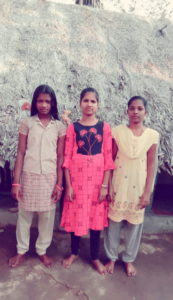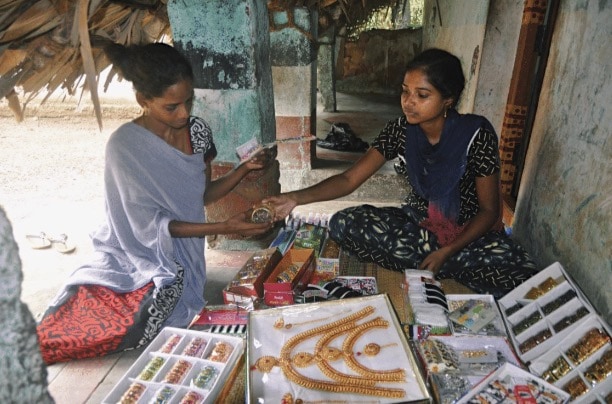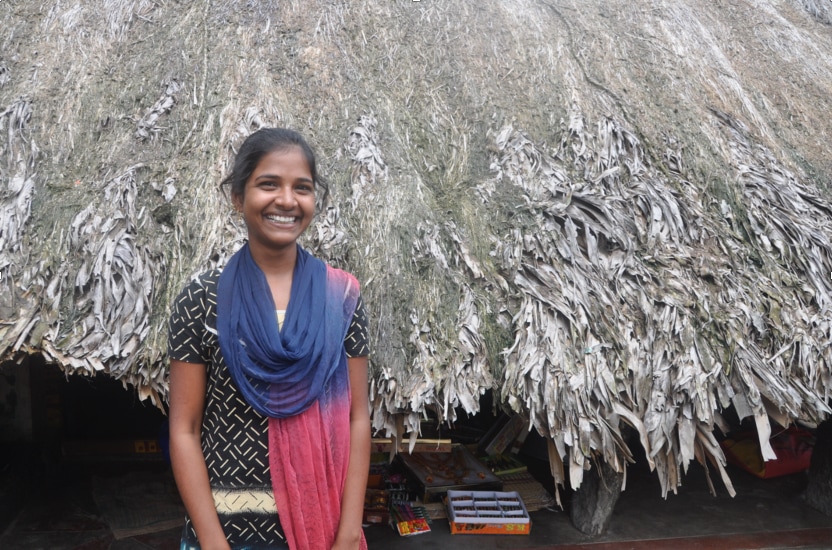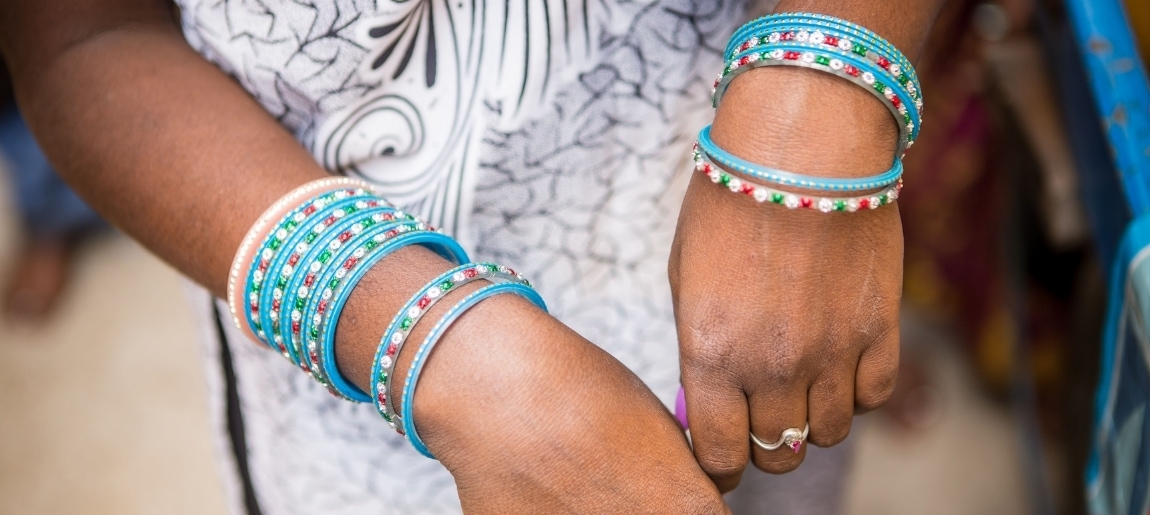When Sangavi was born, her parents considered her a curse.
The firstborn daughter in an Indian culture overly concerned with producing male offspring, Sangavi was a disappointment and thought to be a considerable burden. So, Sangavi’s parents did what most other Indian parents would do: They conceived again, this time saying extra prayers for a boy.
And, once again, they were let down when Sangavi’s mother gave birth to her second baby girl. The imminent sadness and despair continued. But, her parents refused to give up hope and opted to conceive a third child. Surely, they couldn’t be that unlucky.
When Sangavi’s mother gave birth to another girl, her father lost it. Without warning, he abandoned his wife and his three daughters, and they never saw him again. Three years later, Sangavi’s mother followed suit, and the three orphaned sisters went to live with their grandfather.

Their grandfather was elderly and barely earned enough to feed himself, let alone three grandchildren. At best, the sisters ate four meals a week, which Sangavi usually scrounged together with nominal earnings from a piece job or a handout at a temple.
But most days, they went to bed without any food at all. It was on these days of hunger and desperation that Sangavi found herself internalizing what her parents had said all along: Was she cursed?
Even though her parents had not valued their daughters, they deeply missed them. Mostly they missed feeling like they belonged somewhere. When their parents were around, they looked like a real family, which was better than being alone.
For the better part of a decade, Sangavi bravely carried her family through the trenches of extreme poverty. The belief that one day their prayers would be answered kept her going. And in January 2018, Sangavi’s hope paid off. She and her siblings joined Zoe Empowers India.
Gaining food security became the priority. Along with her group mates, Sangavi was trained in agricultural practices, prompting her to cultivate a vegetable garden at home. With a small grant from Zoe, Sangavi purchased ten chickens, which, combined with the vegetables, provided regular meals for her and her sisters.
Once her family was eating regular meals, Sangavi shifted her focus to income generation. The Zoe Empowers facilitator taught the group a range of lessons, including analyzing the market, identify gaps in goods and services, managing cash flow, among others. From there, Sangavi felt confident creating a business plan for a jewelry store.
When the plan was approved, Zoe Empowers provided Sangavi with inventory as part of a start-up kit. The inventory was predominately plastic beaded jewelry, and the sight of it, organized by style in neat little compartments, thrilled Sangavi. One day she would work up to selling precious jewels and stones and maybe even gold or silver as she had seen in other shops, but for now, this was perfect.

There proved to be a market for Sangavi’s jewelry, and her business multiplied. After a few months, she was making as much as $9 per day. In addition to selling pieces, she expanded her business by renting out necklaces and bracelets for special occasions.
In the evenings, Sangavi helped her empowerment group with its collective project. They sold popular Indian snack foods, such as samosa, bajii, bonda, and vadai, out of a small kiosk at the market. Whether it was chopping vegetables, kneading dough, cooking, washing plates, serving customers, or collecting money, all groupmates found a way to contribute. Sangavi’s role was to knead the dough.
When Sangavi began Zoe Empowers, she and her sisters lived in a single-room thatched home with a coconut leaf roof that inevitably leaked. They used the bushes as a latrine. Since joining Zoe, Sangavi afforded a roof upgrade and built a latrine next to the house. Soon, she hopes to move the family to a new home.
Sangavi also applied for government health insurance cards, and the family was approved. Access to proper medical care, combined with improved daily hygiene practices, has significantly enhanced the family’s quality of life. Both of her siblings are back in school, and Sangavi is diligently saving money for her older sister to pursue higher education.
In January, Sangavi will graduate Zoe Empowers, having accomplished every goal on her dream chart. She has become an entrepreneur, a caretaker, a groupmate, a valued member of her community, but she also succeeded in reversing the cursed mindset instilled during her childhood. Now, she believes the cursed narrative to be false. She wants her story to inspire other young Indian girls who thought the same lie.
“According to me, Zoe not only gave us the grant, it gave us confidence, hope, perseverance, self-motivation, and many more to achieve in our life,” said Sangavi. “I thank Zoe for all of these and I assure that we all will shine in our life.”

380 million children living in extreme poverty will rely on charity forever.
$9 a month can change that.
A monthly gift of $9 over 3 years empowers one orphan out of poverty. How many children like Sangavi can you give lasting sustainable change?
